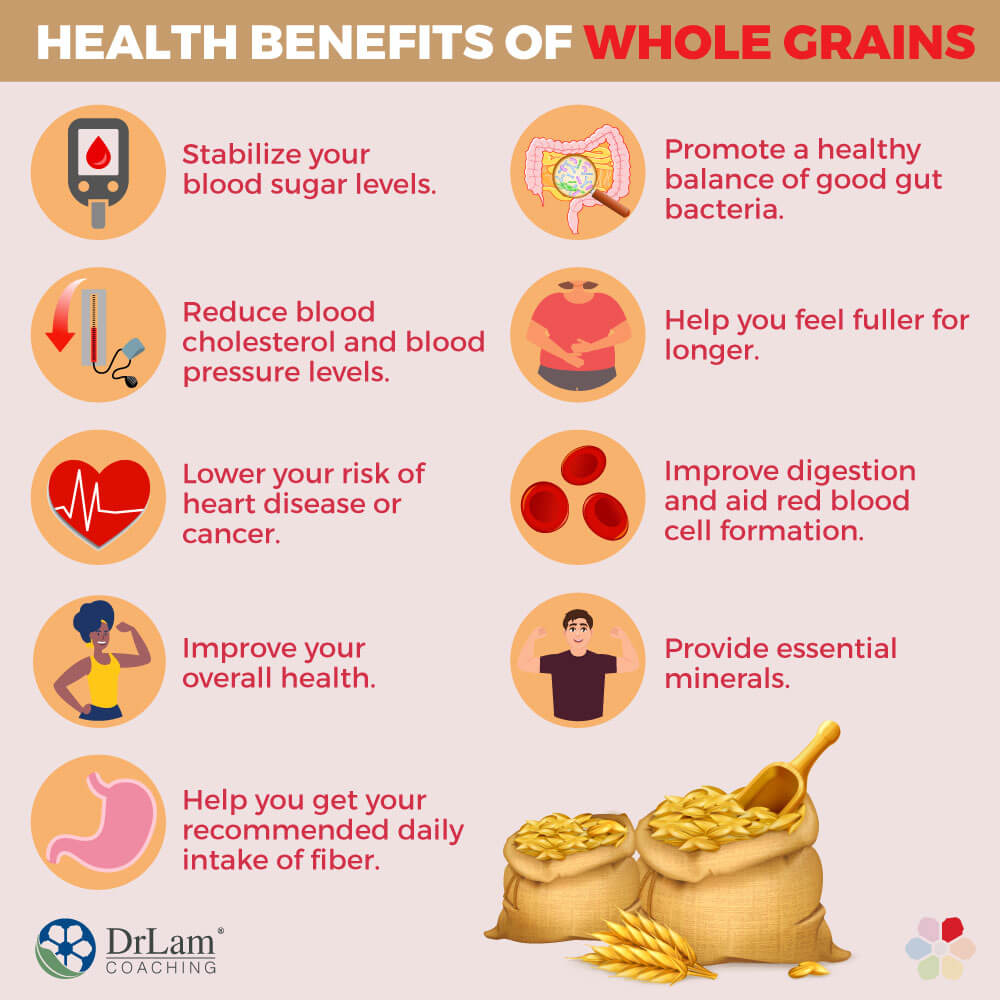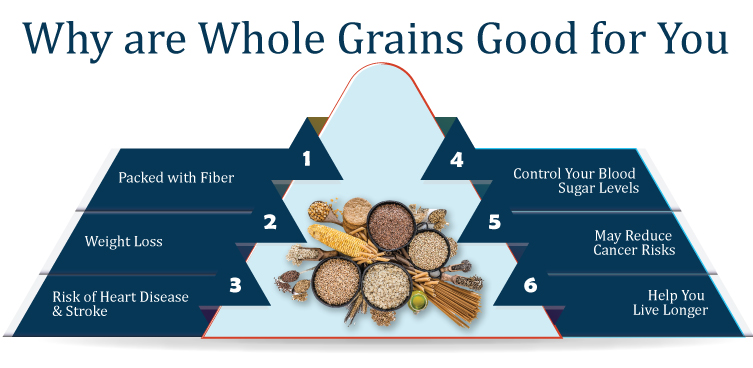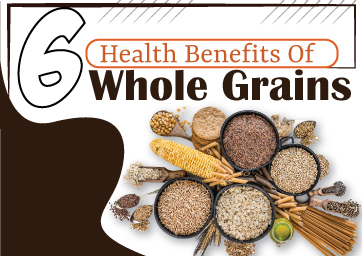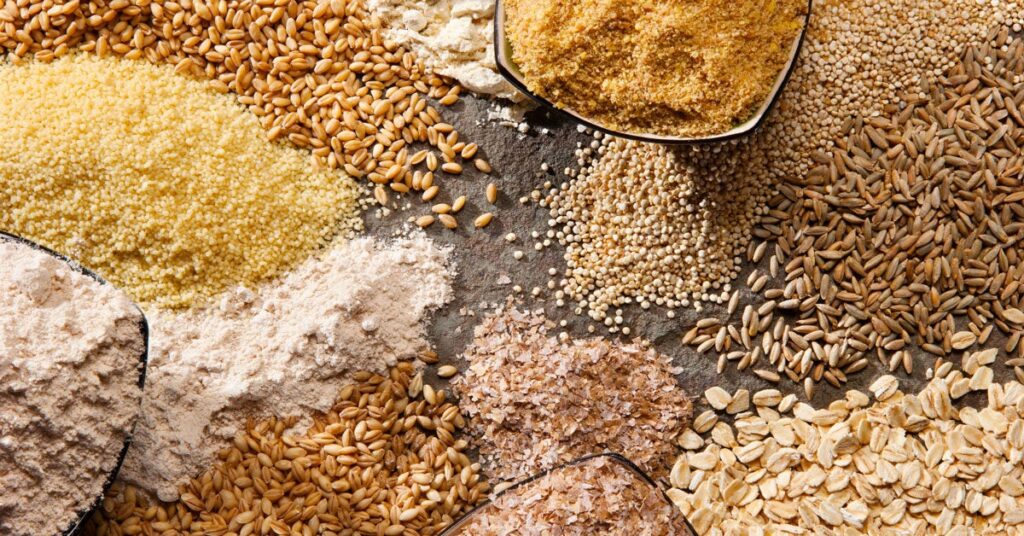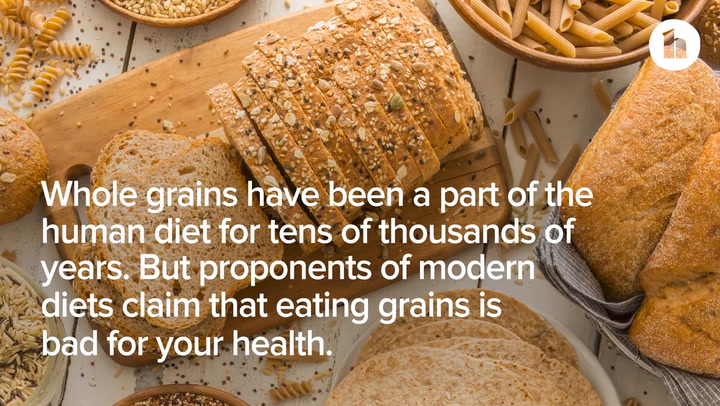
The Health Benefits of Incorporating Whole Grains in Your Weight Loss Diet
“The Health Benefits of Incorporating Whole Grains in Your Weight Loss Diet”
When it comes to achieving your weight loss goals, incorporating whole grains into your diet can be highly beneficial. Whole grains are packed with essential nutrients and fiber, making them a great addition to any weight loss plan. Not only do they help you feel fuller for longer, but they also provide a steady release of energy, keeping cravings at bay.
Whole grains have been linked to numerous health benefits, including promoting heart health, reducing the risk of chronic diseases, and aiding in digestion. They are rich in antioxidants, vitamins, and minerals that support your overall well-being. By replacing refined grains with whole grains, such as whole wheat, brown rice, and quinoa, you can nourish your body while still working towards your weight loss goals. So, why not give your diet a wholesome boost by incorporating whole grains?
Table of Contents
ToggleOverview of Whole Grains
Definition of whole grains
Whole grains are a type of natural grain that contains all three parts: the bran, germ, and endosperm. This means they retain all the essential nutrients and fiber found in the original grain. Unlike refined grains, such as white flour and white rice, whole grains provide a wealth of health benefits due to their intact structure.
Different types of whole grains
There are numerous types of whole grains available, each with its own unique flavors and textures. Some popular examples include whole wheat, brown rice, oats, quinoa, barley, millet, and corn. These can be consumed in various forms, such as bread, pasta, cereals, and side dishes, making it easy to incorporate them into your meals.
Importance of incorporating whole grains in a weight loss diet
When it comes to weight loss, whole grains are a valuable addition to any diet. They are typically low in calories and high in fiber, which helps you feel full and satisfied for longer periods. Additionally, whole grains have a lower glycemic index compared to refined grains, resulting in more stable blood sugar levels, reduced cravings, and improved energy levels.
Nutritional Value of Whole Grains
Fiber content in whole grains
Whole grains are an excellent source of dietary fiber. Fiber plays a vital role in regulating digestion, preventing constipation, and promoting a healthy gut. Furthermore, fiber adds bulk to your meals without adding excessive calories, aiding in weight management by helping you feel more satiated and reducing overeating.
Complex carbohydrates in whole grains
Whole grains are primarily composed of complex carbohydrates, which are slowly digested by the body. This gradual digestion process provides a steady release of energy, preventing spikes and crashes in blood sugar levels. Complex carbohydrates also promote sustained feelings of fullness, helping you control your calorie intake throughout the day.
Protein content in whole grains
While whole grains are not as rich in protein as legumes or animal-based foods, they still contribute a decent amount to your daily protein needs. Including whole grains in your weight loss diet can help support muscle development and repair, providing essential amino acids to your body.
Vitamins and minerals in whole grains
Whole grains are abundant in various vitamins and minerals, including B vitamins, vitamin E, magnesium, zinc, and iron. These nutrients are crucial for maintaining overall health, supporting immune function, promoting red blood cell production, and aiding in energy metabolism. By incorporating whole grains into your diet, you can ensure a well-rounded intake of essential nutrients.
Digestion and Satiety
Effects of whole grains on digestion
The high fiber content in whole grains promotes healthy digestion by adding bulk to the stool and preventing constipation. It also supports the growth of beneficial gut bacteria, which contribute to optimal digestion and nutrient absorption. Including whole grains in your diet can help maintain regular bowel movements and alleviate digestive discomfort.
Impact of whole grains on satiety
Whole grains have a satiating effect due to their fiber and protein content. They take longer to digest, which means they stay in your stomach for a longer time, helping you feel fuller for longer. By increasing feelings of satiety, whole grains can reduce the urge to snack on unhealthy foods, ultimately supporting weight loss efforts.
How whole grains help control appetite
The fiber in whole grains absorbs water and swells in the stomach, physically filling it up and sending signals of fullness to the brain. This can help prevent overeating and mindless snacking. Additionally, whole grains contain certain compounds that stimulate the release of hormones responsible for suppressing appetite, making it easier to stick to a calorie-controlled diet.
Improved Gut Health
Role of whole grains in promoting beneficial gut bacteria
Whole grains contain prebiotic fibers that act as fuel for the good bacteria in your gut. These fibers are fermented by the bacteria in your large intestine, resulting in the production of short-chain fatty acids. These fatty acids provide energy for the cells lining your colon and promote a healthy intestinal environment.
Effects of whole grains on bowel regularity
The fiber in whole grains adds bulk to the stool, softening it and facilitating its movement through the digestive system. This helps prevent constipation and promotes regular bowel movements, contributing to optimal gut health.
Reduced risk of digestive disorders with whole grains
Research suggests that a diet rich in whole grains may help reduce the risk of certain digestive disorders, such as diverticulosis, hemorrhoids, and irritable bowel syndrome. The combination of fiber, vitamins, and minerals in whole grains supports a healthy digestive system, minimizing the chances of developing these conditions.
Reduced Risk of Chronic Diseases
Whole grains and heart health
Including whole grains in your diet has been linked to a reduced risk of heart disease. The fiber, antioxidants, and phytochemicals present in whole grains help lower cholesterol levels, reduce inflammation, and improve blood vessel function. These factors collectively contribute to maintaining a healthy cardiovascular system.
Effects of whole grains on blood pressure
Research has shown that consuming whole grains regularly can help lower blood pressure levels. The combination of fiber, potassium, and magnesium found in whole grains contributes to blood pressure regulation, reducing the likelihood of hypertension and its associated health risks.
Whole grains and diabetes prevention
Whole grains have a low glycemic index, meaning they have a slower impact on blood sugar levels. This characteristic is beneficial for individuals at risk of or already managing diabetes. By incorporating whole grains into meals, you can promote stable blood sugar levels, improve insulin sensitivity, and reduce the risk of developing type 2 diabetes.
Link between whole grains and reduced risk of certain cancers
Studies have indicated that consuming whole grains is associated with a lower risk of certain types of cancer, including colorectal and pancreatic cancer. The fiber and various bioactive compounds present in whole grains exhibit protective effects, potentially inhibiting the growth of cancer cells and reducing inflammation in the body.
Boosted Metabolism and Energy Levels
Whole grains and metabolism
Whole grains contain B vitamins, which play a crucial role in energy metabolism. These vitamins are responsible for converting food into usable energy, allowing your body to efficiently use the nutrients from whole grains and other foods. A well-functioning metabolism is vital for maintaining a healthy weight and supporting overall energy levels.
Impact of whole grains on energy levels
The slow and steady release of carbohydrates from whole grains provides a sustained source of energy throughout the day. Unlike refined grains, which can cause energy crashes, whole grains keep your blood sugar levels stable and prevent sudden drops in energy. Including whole grains in your meals can help you feel more energized and focused throughout the day.
Enhanced athletic performance with whole grains
For those who engage in regular physical activity, whole grains can be particularly beneficial. The carbohydrates in whole grains serve as a crucial fuel source for exercise, providing readily available energy to support performance. Additionally, the vitamins and minerals in whole grains contribute to optimal muscle function and recovery.
Weight Loss and Whole Grains
Caloric density of whole grains
One of the advantages of whole grains for weight loss is their relatively low caloric density. Despite being nutrient-dense, whole grains typically have fewer calories compared to refined grains. This means you can enjoy a larger portion of whole grains within your daily calorie allowance while still feeling satisfied and reducing the risk of overeating.
Sustainable weight loss with whole grains
The fiber, protein, and complex carbohydrates in whole grains make them an excellent choice for sustainable weight loss. They provide the body with essential nutrients, help control appetite, and contribute to a balanced diet without depriving you of necessary energy for physical activity. By incorporating whole grains into your weight loss plan, you can achieve gradual and sustainable results.
Replacing refined grains with whole grains for weight management
A simple and effective way to improve your weight management efforts is by replacing refined grains with whole grains. Swap white bread for whole wheat bread, white rice for brown rice, and refined pasta for whole wheat pasta. These substitutions provide more nutrients, increase fiber intake, and support better weight control.
Role of whole grains in maintaining weight loss
Once you have reached your weight loss goal, incorporating whole grains into your maintenance diet is essential for long-term success. Whole grains help maintain feelings of fullness, prevent weight regain, and support overall health. By continuing to include whole grains in your meals, you can sustain your weight loss efforts and enjoy the associated health benefits.
Recipes and Tips for Incorporating Whole Grains
Delicious whole grain recipe ideas
- Quinoa Salad with Roasted Vegetables
- Whole Wheat Pasta Primavera
- Barley and Vegetable Soup
- Oven-Baked Cajun Spiced Brown Rice
- Oatmeal with Fresh Berries and Nuts
Tips for selecting and cooking whole grains
- When purchasing whole grain products, look for labels that state “100% whole grain” or “whole grain as the first ingredient.”
- Experiment with different types of whole grains to discover your preferences in terms of taste and texture.
- Take note of cooking times and methods for different whole grains. Some require soaking, while others can be cooked directly in water or broth.
Incorporating whole grains into snacks and meals
- Use whole grain bread, wraps, or tortillas for sandwiches and wraps.
- Replace regular cereal with whole grain options, such as oats or bran flakes.
- Snack on air-popped popcorn instead of processed potato chips.
- Try incorporating whole grains into homemade granola bars or energy balls for a healthy and satisfying snack option.
Precautions and Considerations
Gluten sensitivity and whole grains
If you have a gluten sensitivity or celiac disease, it is essential to choose gluten-free whole grains, such as quinoa, brown rice, and gluten-free oats. Avoid grains like wheat, barley, and rye, which contain gluten and can cause adverse reactions.
Balancing whole grain intake with other food groups
While whole grains are an important part of a healthy diet, it is crucial to balance their intake with other food groups. Incorporate a variety of fruits, vegetables, lean proteins, and healthy fats to ensure a well-rounded and nutrient-rich diet.
Portion control with whole grains
Even though whole grains offer numerous health benefits, it is still necessary to practice portion control. Be mindful of the serving sizes recommended on packaging or consult with a registered dietitian to determine appropriate portion sizes for your specific dietary needs.
Consulting with a healthcare professional
If you have any specific health concerns, dietary restrictions, or questions about incorporating whole grains into your weight loss diet, it is always wise to consult with a healthcare professional or registered dietitian. They can provide personalized advice based on your individual needs and goals.
Conclusion
Incorporating whole grains into your weight loss and overall health journey is a wise decision. With their high fiber content, complex carbohydrates, and essential nutrients, whole grains offer numerous benefits. They support digestion and satiety, promote gut health, reduce the risk of chronic diseases, boost metabolism and energy levels, and assist in weight loss efforts. By including whole grains in your meals and snacks, you can enjoy a delicious and nutritious variety of options while reaping the many health advantages they provide. Remember to make thoughtful choices, moderate portion sizes, and maintain a balanced diet to achieve optimal results. Here’s to a healthier, happier you with the power of whole grains!
Discover the health benefits of incorporating whole grains into your weight loss diet. Packed with nutrients and fiber, whole grains keep you full and energized while promoting heart health and supporting digestion. Improve your well-being and achieve your weight loss goals with wholesome grains.

